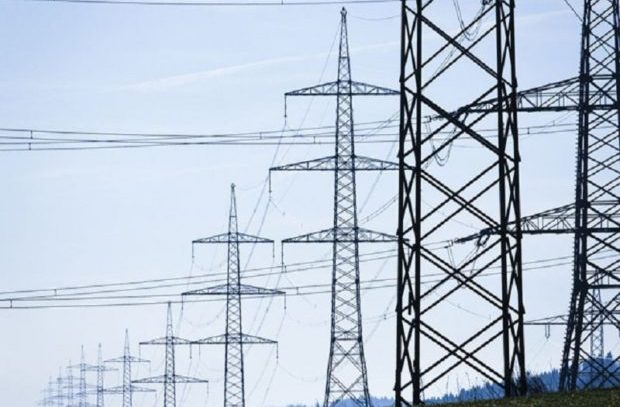DOE wants EPIRA to ban foreign power distributors

NGCP power lines (File photo from the Philippine Daily Inquirer)
MANILA, Philippines — The Department of Energy (DOE) has a proposal to amend the Electric Power Industry Reform Act of 2001 (EPIRA) to ban foreign-owned or foreign government-backed enterprises from engaging in power transmission.
In the hearing of the House Committee on Energy on Tuesday, DOE officials, Undersecretary Sharon Garin, a former House representative, presented the DOE version of the bill seeking to reform the EPIRA (Republic Act No. 9136) — which many lawmakers believe has failed to bring electricity prices down.
Section 5 of the DOE proposal would like to include additional paragraphs that would effectively prohibit firms controlled or acting on behalf of foreign governments from doing electric transmission business in the Philippines.
Foreign government-backed enterprises currently operating would be asked to divest their investments within 10 years after the bill is enacted into law.
“Provided further, that an entity controlled by or acting on behalf of the foreign government or foreign state-owned enterprises shall be prohibited from owning capital in any entity engaged in the transmission of electricity,” the DOE-backed bill read.
Article continues after this advertisement“Provided further, that foreign state-owned enterprises which own capital prior to the effectivity of this law are prohibited from investing in additional capital upon the effectivity of this act and shall divest its investment within ten (10) years from the date of the effectivity of this act,” it added.
Article continues after this advertisementThe DOE Policy Legal Service Division officer-in-charge, Dexter Suyat, told the House panel that the amendments were placed to align “the EPIRA with the Public Service Act as amended.”
The bill — if this provision is retained in the version passed by Congress and signed by the president — also mandates that existing entities acting on behalf of foreign governments cannot make disclosures and extend assistance to other governments in the interest of the Philippines’ national security.
“In the interest of national security, an entity controlled by or acting on behalf of the foreign government or foreign-owned enterprises shall not make any date or information disclosure, nor extend assistance, support or cooperation to any foreign government, instrumentalities or agents,” the bill read.
Another proposed amendment to the EPIRA includes allowing a sitting president to declare an electric power crisis when the power supply is at a critical level.
Also, the DOE-backed bill also seeks to empower the Energy Regulatory Commission (ERC) by giving it authority to look at the financial statements of the generation sector.
“The President may, upon the recommendation of the DOE, issue a declaration of electric power crisis in times of critically low electricity supply or unusually high electricity prices,” the proposal stated.
“During an electric power crisis, the DOE shall issue temporary measures to mitigate the impact on the consumers and other initiatives for the efficient allocation and conservation of energy; provided, that the effectivity of such issuances shall continue until the lifting of the declaration of the electric power crisis by the President,” it added.
House committed to amend EPIRA
Members of Garin’s committee assured the public and DOE that they, along with the committee chair, Marinduque Rep. Lord Allan Velasco, were committed to passing a bill to amend the EPIRA.
According to Camarines Sur Fourth District Rep. Arnie Fuentebella, the problem with bills passed by the House is that their counterpart measures are not immediately addressed by the Senate.
“Just to inform everyone, our chairman Lord Velasco is very committed to fast-track this bill,” Fuentebella said.
Speaker Ferdinand Martin Romualdez himself assured the public that the House would support the Marcos administration’s energy initiatives, saying that energy-related bills would be addressed, including those calling for EPIRA amendments.
EPIRA was signed in 2001 by then-President Gloria Macapagal Arroyo, who is now deputy speaker of the House, in a bid to liberalize the power industry and bring power prices down without sacrificing quality.
However, several pro-consumer and progressive groups noted that the EPIRA turned out to be anti-people and pro-corporation instead.